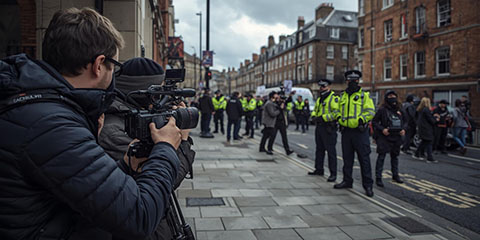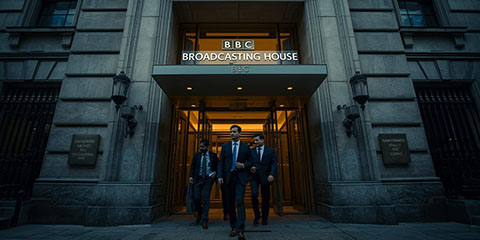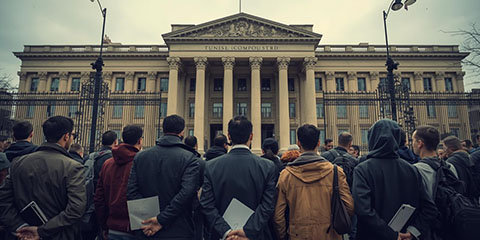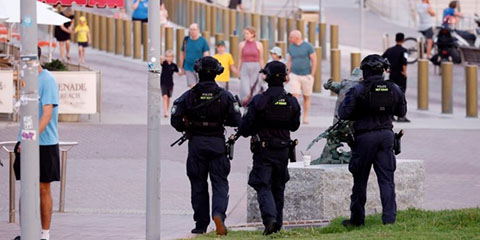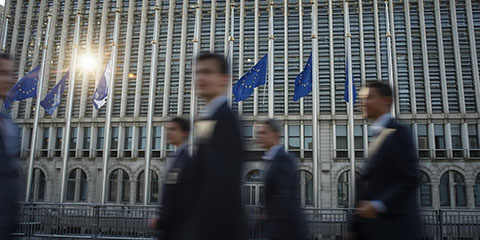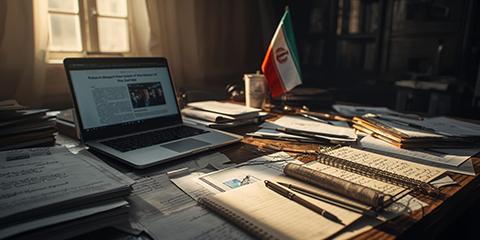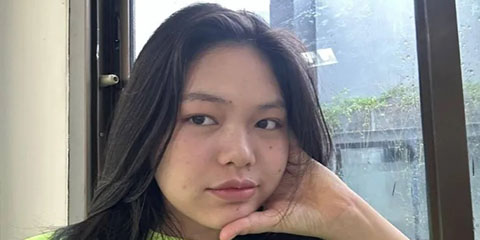Blogger killed, editor missing as Mozambique's press freedom crisis deepens
JournalismPakistan.com | Published 10 months ago | A CPJ Report
Join our WhatsApp channel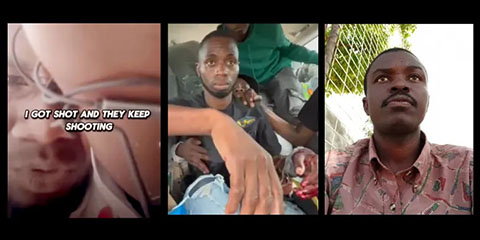
MOZAMBAIQUE- “Help. I got shot and they keep shooting…I am dying.”
These were among the last words that Mozambican blogger Albino Sibia streamed live on Facebook on December 12, 2024, after a police officer shot him twice in the back as he was filming police action against protestors.
Sibia, also known as Mano Shottas, died about four hours later, as he was taken from a local clinic to a hospital.
The police “didn’t let him rest even on his funeral,” Sibia’s widow, Vania Tembe, told CPJ. Police opened fire against mourners, killing two people and injuring reporter Pedro Junior, who was covering the December 14 funeral.
In a separate incident, another journalist, Arlindo Chissale, went missing on January 7, and several reports, unconfirmed by CPJ, say that he is dead. Chissale, an opposition politician and the editor of the online outlet Pinnacle News was taken into custody by a group of men, some of whom were reported to be in military uniform, in the restive Cabo Delgado province.
The attacks on the three journalists, the latest violations against Mozambican media, are symptomatic of the deterioration in conditions for journalists ever since a disputed October 2024 election. All three journalists commented on or reported the nationwide protests that followed the elections, during which security personnel were accused of using excessive force, resulting in the death of at least 300 people.
“Mozambican journalists have paid a heavy price reporting the news amid unrest and a post-election crisis,” said CPJ Africa Program Coordinator, Muthoki Mumo, from Nairobi. “Authorities should ensure accountability in the murder of Albino Sibia and the attack on Pedro Junior, and credibly investigate Arlindo Chissale’s disappearance.”
Thirty-year-old Sibia was filming police tear-gassing homes to break up a protest in the border town of Ressano Garcia when an officer shot him. Jose Chilenge, a protestor, told CPJ he witnessed an officer telling the blogger to stop filming “because there could be no record of what was going to happen next.”
Sibia did not stop filming.
“When the officer realized Shottas continued to film, he shot him once, and a second time when he had already fallen to the ground,” Chilenge said.
Residents of Ressano Garcia were protesting the transportation of chromium, which they believed was contaminating their water. In the weeks before his death, Sibia also covered broader protests in the wake of the elections, in which the ruling Frelimo party claimed victory.
Junior, a reporter with the local channel SPMTV, told CPJ he was filming police action against mourners when officers started shooting. Júnior and three colleagues – Egilio Litsure, Wilken Alberto, and Dério Chichava – ran to a local home for cover. Junior said that he continued filming the unrest from the home but that police noticed him and shot at him, hitting him on the arm. Junior said that he and his colleagues were all wearing “Press” vests at the time.
The journalists said they left the home with their arms raised, alongside a friend Abel Timana, to seek medical attention for Júnior. Litsure said that police “showered [them] with bullets” again, killing Timana. Litsure twisted his ankle while trying to get away from the police.
Junior told CPJ he was hospitalized in neighboring South Africa for about two weeks.
On January 7, Arlindo Chissale left his home in Pemba, the capital of Cabo Delgado province, to travel to Nacala, a city in the neighboring Nampula province, his brother Macario Chissale told CPJ. Macario Chissale said that later that day, in the Cabo Delgado village of Silva Macua, witnesses saw eight men, three of whom were in military uniform, stop a minibus in which Arlindo Chissale was traveling. The men, driving an unlicensed white car, forced Arlindo Chissale to come with them, Macario Chissale told CPJ.
Arlindo Chissale is a supporter of the opposition politician Venâncio Mondlane, who also claimed victory in the election. Arlindo Chissale published commentary critical of Frelimo on Pinnacle News and he supported the opposition party Podemos until it broke ranks with Mondlane in December. Podemos has said that many of its members have been murdered or abducted since the elections.
Pinnacle News, which also distributes content on WhatsApp, specializes in covering the Islamic state-linked insurgency in Cabo Delgado. CPJ has documented other attacks against journalists in the region, including the 2020 disappearance of radio presenter Ibraimo Abu Mbaruco, after he texted a colleague that he was surrounded by soldiers. In 2022 Chissale was arrested and detained for six days in Cabo Delgado.
Police spokesperson Leonel Muchina did not respond to CPJ’s calls and messages. On January 16, Noemia Joao, National Criminal Investigation Service spokesperson in Cabo Delgado, said that no complaint had been filed with the service in connection to the case. Arlindo Chissale’s family filed a complaint with the police about his disappearance on the same day, according to the journalist’s brother. Joao has not answered CPJ’s calls and messages since then.
The Mozambican chapter of the Media Institute of Southern Africa (MISA) has recently denounced the “the growing violations of the rights to information and freedom of expression in Mozambique”, warning of “worsening restrictions on fundamental freedoms” including through “attacks on journalists.” MISA has called for an “independent investigation into the abuses committed” during the post-election period.
Photo caption: An image of journalist Albino Sibia's last words after being shot by police in Mozambique on December 12 (left); reporter Pedro Júnior is transported to the hospital after being shot while covering Sibia's December 14 funeral (center); and a selfie of journalist Arlindo Chissale, who went missing on January 7 and who may be dead, according to media reports. (Images, from left: screenshot via José Pimentel Teixeira/ YouTube; photo by Egilio Litsure, photo by Arlindo Chissale)



